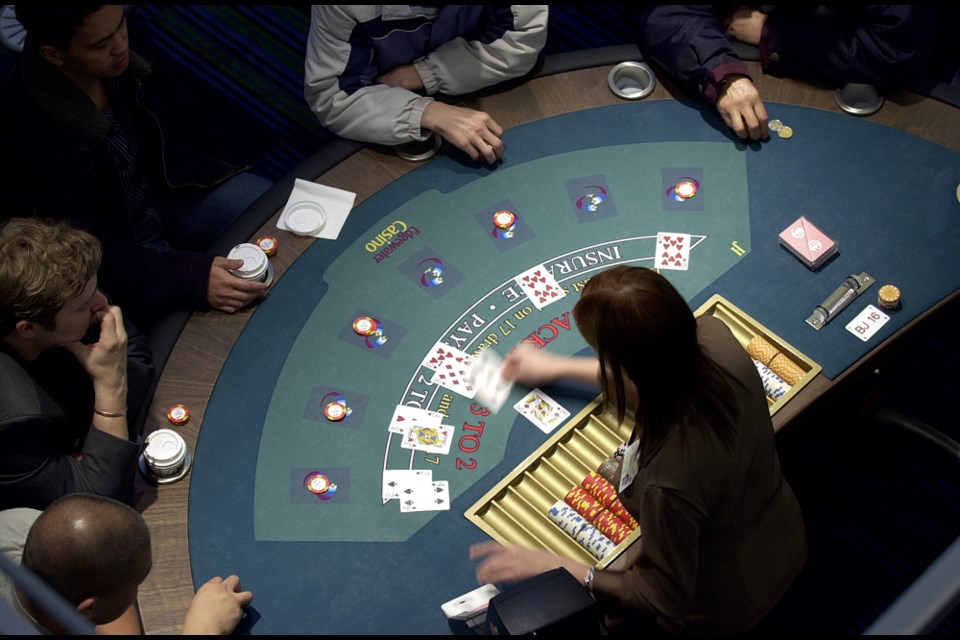With all this talk these days about casinos and money laundering, I thought you might be interested to know how much cash the city collected over the last five years from Parq Vancouver and Hastings Racecourse.
I thought you’d also like to know where some of the mayoral candidates stand on the relationship between casinos and collecting revenue that is relied upon to help fund the city’s budget.
A lot to digest here, but I’ll do my best to make it interesting.
Here we go…
As the headline on this piece notes, the city’s cut of casino revenue was $45 million between 2013 and 2017. I got that information after filing a request via the Freedom of Information and Protection of Privacy Act.
I didn’t really have to go that route because the information is available in the annual reports of the B.C. government’s Gaming Policy and Enforcement Branch.
But I decided to follow through with the FOI request out of principle, knowing that in previous years the city would turn over the information almost immediately after I asked for it.
That information would also include where the city’s gaming money was spent, which are details not readily available in the government’s Gaming Policy and Enforcement Branch reports.
Anyway, I’ll save my access-to-information woes for another piece and get to the money.
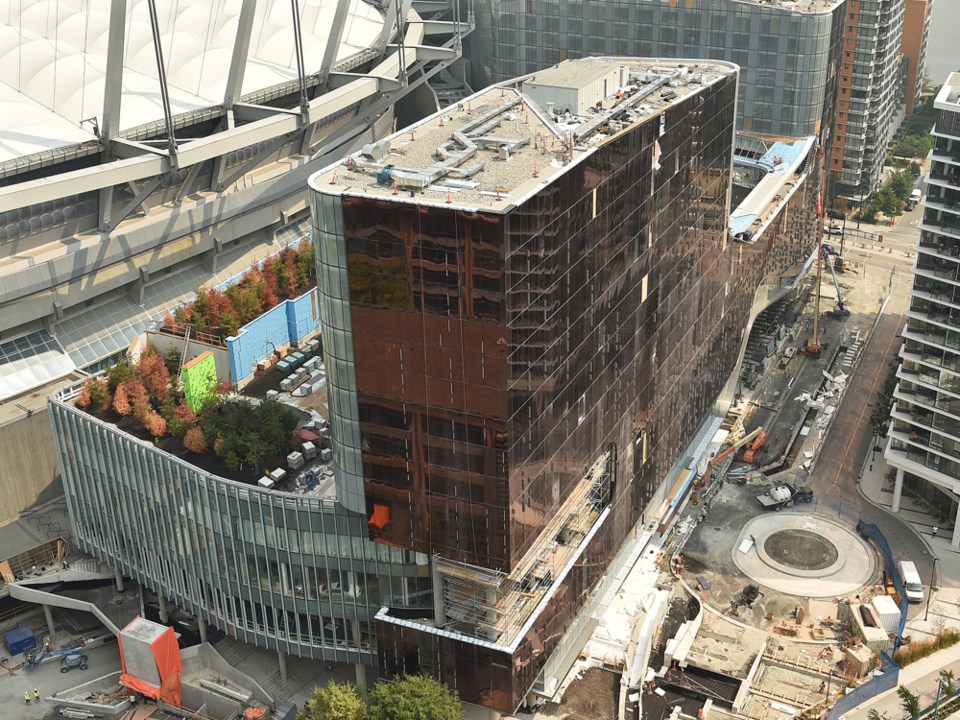
Parq Vancouver, which opened last September adjacent to B.C. Place Stadium, generated the bulk of the 10 per cent cut in gaming revenues the city collected over the last five years.
In 2017 alone, Parq turned over $8.7 million to the city.
Parq, which includes two hotels, restaurants and spas, is an expansive version of the former Edgewater casino that was located across the street at the Expo 86-era Plaza of Nations site.
In 2016, the Edgewater generated $8.6 million for the city. That was an increase from $8.3 million in 2015, $7.2 million in 2014 and $6.6 million in 2013.
The city says the revenue is used to fund the departments of the police, fire, parks, and engineering. The funds also pay for community grants.
Over the same five-year period, the 500 slots at Hastings Racecourse generated an average of $1.1 million per year for the city. Great Canadian Gaming Corporation owns the racecourse and casino.
Parq has 600 slots and more than 70 gaming tables.
The city documents cover 2013 to 2017, unlike the most recent annual report of the B.C. government’s Gaming Policy and Enforcement Branch, which covers the period from April 1, 2017 to March 31, 2018.
For that period, the government’s statistics show Parq’s cut to the city was $9.4 million. The racecourse’s contribution for the same period was $1 million.
So how do those totals compare to other municipalities with casinos?
Glad you asked.
The image below, which I copied from the Gaming Policy and Enforcement Branch’s report, shows how much money went to other B.C. municipalities over the last two years.
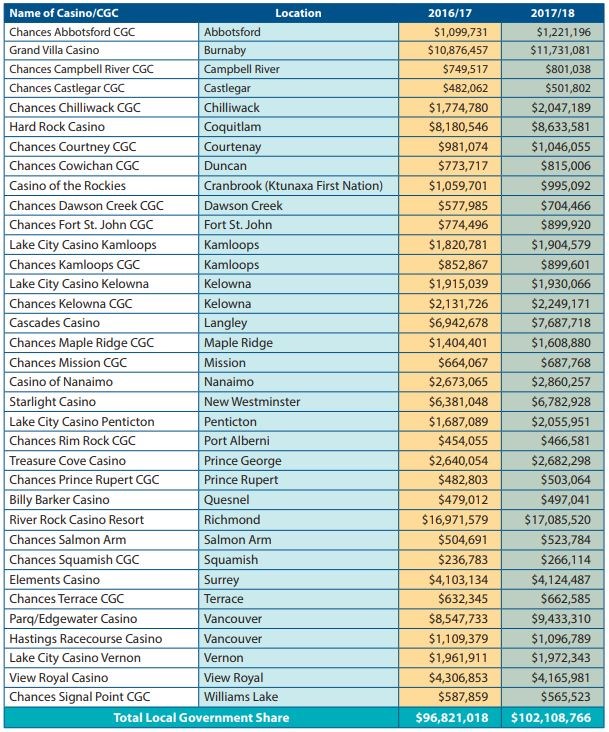
Parq opened despite owner Paragon Gaming Inc. arguing unsuccessfully in 2011 before city council that it needed to almost triple the number of slot machines and double the number of gaming tables to support its business case to build the new complex.
The company went ahead anyway and spent north of $600 million to construct the giant copper-coloured complex, which celebrated its first anniversary last week. But business, as the company’s biggest investor suggested this summer, could be better.
Toronto-based Dundee Corporation, which holds a 40 per cent interest in Parq, revealed in its financial statements ending June 30 that it incurred a loss of $80.8 million in its investment with the casino.
In August, Dundee issued a news release that quoted its chairman and chief executive officer, Jonathan Goodman, who outlined factors for the loss.
“At Parq Vancouver, the ramp-up of operations proceeded at a slower than anticipated pace, and continues to be exacerbated by the recent implementation of anti-money laundering initiatives, which are having an adverse impact on the gaming industry in British Columbia,” Goodman said.
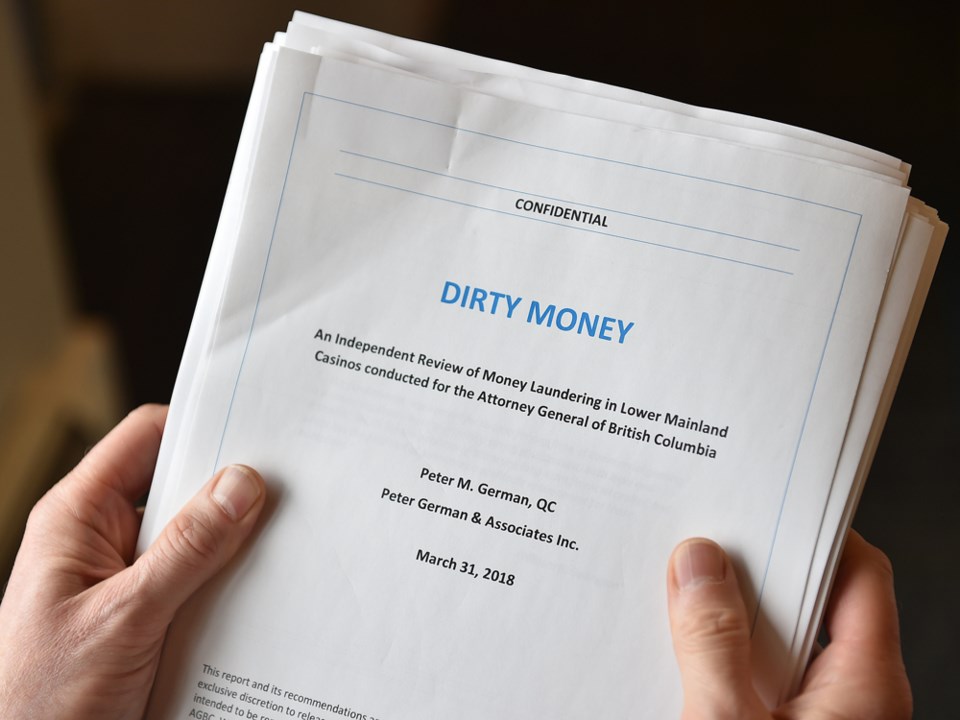
The anti-money laundering initiatives Goodman referred to are in relation to the provincial government’s independent review of money laundering in Lower Mainland casinos.
That’s the oft-quoted “Dirty Money” report authored by former RCMP deputy commissioner Peter German, who concluded that “certain Lower Mainland casinos unwittingly served as laundromats for the proceeds of organized crime.”
German added: “This represented a collective system failure, which brought the gaming industry into disrepute in the eyes of many British Columbians.”
That said, German made it clear his review was not a fault-finding investigation, although he did reference names of some casinos from media reports, namely the River Rock in Richmond.
Parq is mentioned 12 times in the report, although the information pertains mainly to its operation, what it offers and background on Paragon, a Las Vegas-based gaming company led by second-generation members of one of Nevada’s prominent gaming families.
The provincial government has since acted upon some of German’s recommendations, including implementing policy to monitor so-called bulk cash transactions at casinos.
The “Dirty Money” report came up during an interview I conducted in July with Greg Krueger, the city’s associate director of financial reporting, and Melanie Kerr, the city’s director of financial services.
I asked both of them whether they had read the report.
Krueger: ‘I just saw the headlines.”
Kerr: “I skimmed some of it, but won’t comment on it.”
I then asked how the public can be sure the money the city collects from casinos is not “dirty?”
Krueger: “Well, we don’t know, but the money we get is from the province. We don’t question the source. It’s gaming revenue. If the province decides to put in controls that impacts that, then that’s the province’s area of business. It’s not the city’s, I don’t think.”
One other question I put to Krueger is what would happen if the city stopped collecting casino revenue?
Krueger: “It would have to come from other revenue sources. So either an increase in property tax, or an increase in fees that we charge.”
Slot machines are responsible for generating the bulk of the casino money collected by the city. The machines were first approved for Edgewater in January 2004 by then-Vision Vancouver mayor Larry Campbell and Vision councillors Jim Green, Raymond Louie, Tim Stevenson and COPE’s David Cadman.
Six months later, Campbell, Louie, Stevenson and Green voted for slots at Hastings Racecourse. So did the NPA’s Sam Sullivan and Peter Ladner.
At this time, it appears the city is not prepared to add more slots, or expand gambling. At least that’s what Mayor Gregor Robertson said in 2011 when the majority of council rejected Paragon’s bid to add more slots and gaming tables to Parq’s proposal.
But, with a change at city hall coming Oct. 20, could Vancouver see an expansion of gambling under a new administration? Would such a shift occur when German's report raised concerns that dirty money was infiltrating the real estate sector?
I sent questions on this topic to mayoral candidates Shauna Sylvester, Kennedy Stewart, Ken Sim, Hector Bremner and Wai Young. Only Young did not reply with emailed answers before deadline. And Sim supplied one answer for all three questions.
Here are the questions I asked:
1) If elected mayor, will you allow more casinos to operate in Vancouver? Please elaborate on your answer.
2) If elected mayor, would you allow any of the two existing casinos—Parq and Hastings Racecourse—to add more slot machines and gaming tables to their operations? Please elaborate on your answer.
3) Over the last five years, the city collected roughly $45 million in revenue from both of Vancouver’s gaming facilities. The money is used to fund police, fire, parks, engineering, community and other services. If elected mayor, would you be prepared to stop collecting money from casinos and look to other revenue sources to fund the city’s $1 billion budget? Please explain your answer.
Here are their answers:
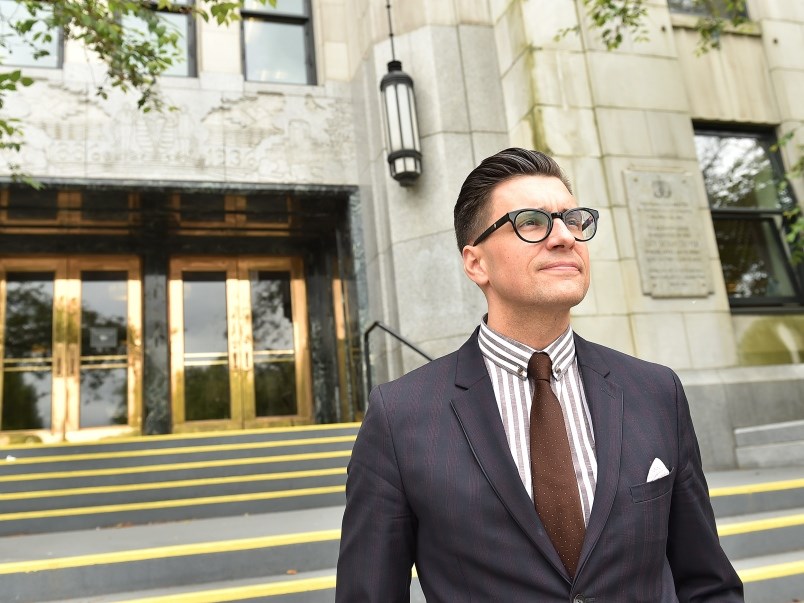
Hector Bremner (Yes Vancouver)
1) While the provincial government determines how many gaming licences there are in B.C., judging the current lay of the land, I think the likelihood of another application in Vancouver is unlikely in the near term. But, under the law and fair practice, an application could be considered by staff without politicians interfering and brought forward for public consultation. Through that process, the mayor and council could weigh the decision appropriately.
2) Based on the public consultation around the Parq Casino and the subsequent vote, the current gaming slots and tables seem to be at a level that the company and community are comfortable with. Hastings Racecourse’s future is more of a question as the facility is aging and use is down. It’s hard to project what will be done there today, but gaming is not the only potential use for the site. So, you could just as likely see a drop in slots.
3) I look forward to the final recommendations and future actions to be taken by the province in this matter. That said, I understand that many people enjoy gaming as a form of entertainment. By providing a legal avenue for this we can capture revenue and put that into a variety of positive things, like public services and community amenities. Things that cities have a hard time generating revenue for. Of course, others view gambling as a vice and are concerned with how they operate. I think we can move past the morality piece and focus on operations and I will have a zero tolerance for any criminal activity in our casinos as mayor and chair of the Vancouver Police Board. Operators will know they need to act to the highest expectations, otherwise penalties such as the suspension of certain permits and other penalties will be levied.
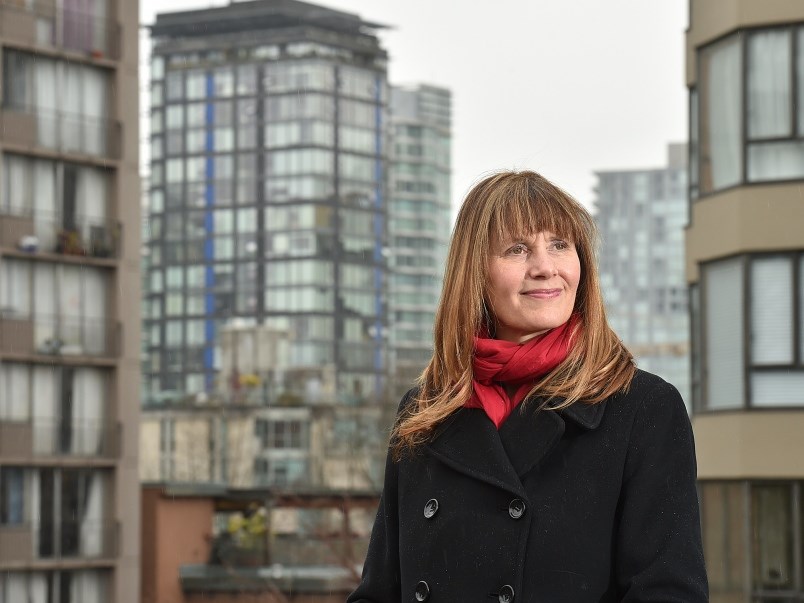
1) As mayor, I will call for a full public inquiry into casino and real estate money laundering in order to restore public confidence and get to the bottom of what has happened/continues to happen.
2) I'm fully opposed to any casino expansions, hard stop. I would not allow more casinos to operate in Vancouver nor would I allow the Parq or Hastings to add more slot machines or gaming tables. Our casinos are currently under investigation by the Attorney General for criminal activity and money laundering. In addition, gambling addiction is a far larger public health problem than people realize because it’s usually a quiet addiction. There is no justification to allow for any sort of expansion.
3) The city collects $9 million of revenue annually from casinos, which is only .6 per cent of the city’s $1.4 billion budget. As Mayor, I've already committed to doing a full financial report to the citizens of the city to navigate how our funds are being spent. Our city can look for other revenue streams. As for the current revenue, the city should put the money into a prosperity fund to help combat gambling addiction, which is a severe silent public health crisis, until the casino revenue is fully phased out.
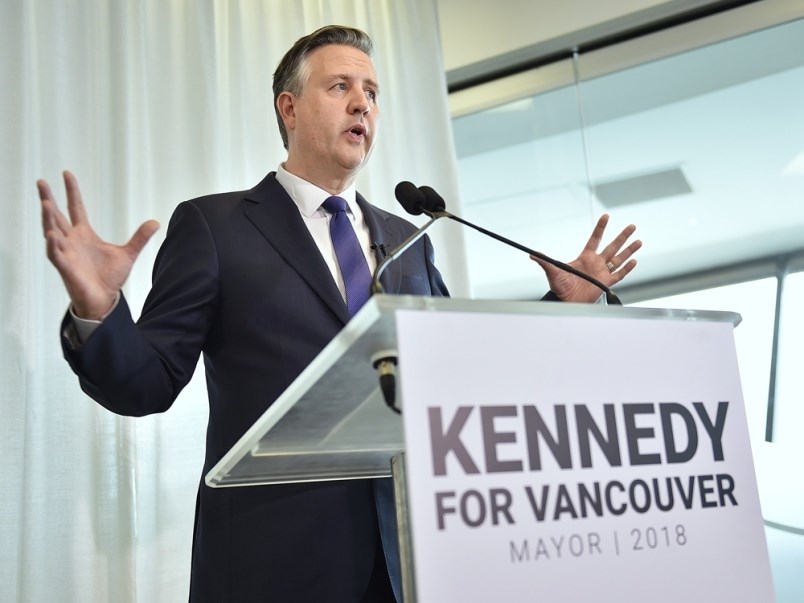
Kennedy Stewart (Independent)
1) While casino gaming is a legal source of entertainment and employment for many British Columbians, I think that Vancouver currently has enough gaming operations in our city and I am not in favour of expansion. I understand the public’s concerns regarding problem gambling by vulnerable members of our society as well as allegations that some B.C. casinos have been used by organized crime to launder money. I fully support the Attorney General’s independent investigation into money laundering and the role of dirty money in BC’s housing market and other sectors of the economy.
2) I don’t believe that either Parq or the Hastings Racecourse are currently calling for more slot machines and gaming tables at their operations. Given the reports of money laundering occurring at B.C. casinos, I think it would be prudent to wait for the Attorney General to conclude his investigations and implement changes to the industry, before considering the expansion of slot machines and gaming tables within the city.
3) The city's revenue streams are so limited that unless we find other sources we will have to continue to rely on these revenues. However, we need to help people with gambling addictions by implementing programs that actually work. This may include the rollout of pre-commitment card programs that set time and spending limits and more effective self-exclusion programs to allow addicts to opt into programs to be turned away from gaming facilities. I also look forward to seeing the recommendations from the Attorney General’s independent review into casino money laundering implemented to keep dirty money out of casinos.
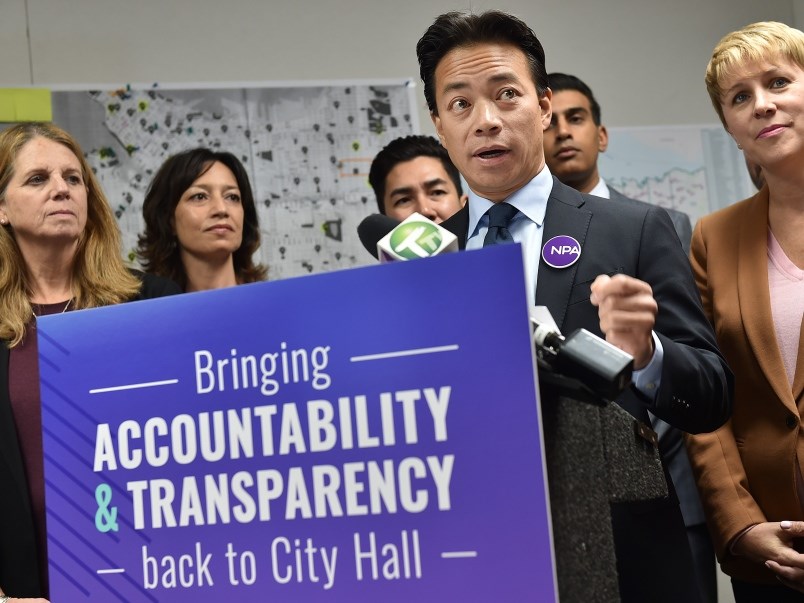
Ken Sim (NPA)
Dealing with Vancouver's affordability crisis head-on is our top priority, which is why we have released a comprehensive housing plan, which includes the immediate action of allowing two secondary suites in all detached homes. We are aware of the provincial government's statements with respect to money laundering, and how this may be impacting the cost of housing. We support the reviews being undertaken by the provincial government, including the recently-released Peter German report, and look forward to working cooperatively to implement recommendations. Understanding the full extent of the impacts of our gaming facilities—both positive and negative—will be a top priority for an NPA mayor and council if elected. Until that time we will not be making any commitments with respect to the operations of existing facilities.
Final note:I spoke to Attorney General David Eby a couple of weeks ago and he said he wasn’t aware of any new casino proposals “either that we’re anticipating or that are underway to expand gaming in Vancouver. And I don’t believe there’s an appetite, certainly with the current administration at city hall, or generally in Vancouver, for more gaming facilities.”
To my question about municipalities relying on casino profits to help fund budgets, Eby said: “I would urge municipalities and gaming service providers who are already saying that their profits are down—to the extent they’re dependent on that kind of activity—that they’re going to be impacted by government’s decisions.”
Eby, meanwhile, announced last week that German is now examining whether money laundering is linked to the luxury car market and horse racing. A final report is due March 2019.
@Howellings
